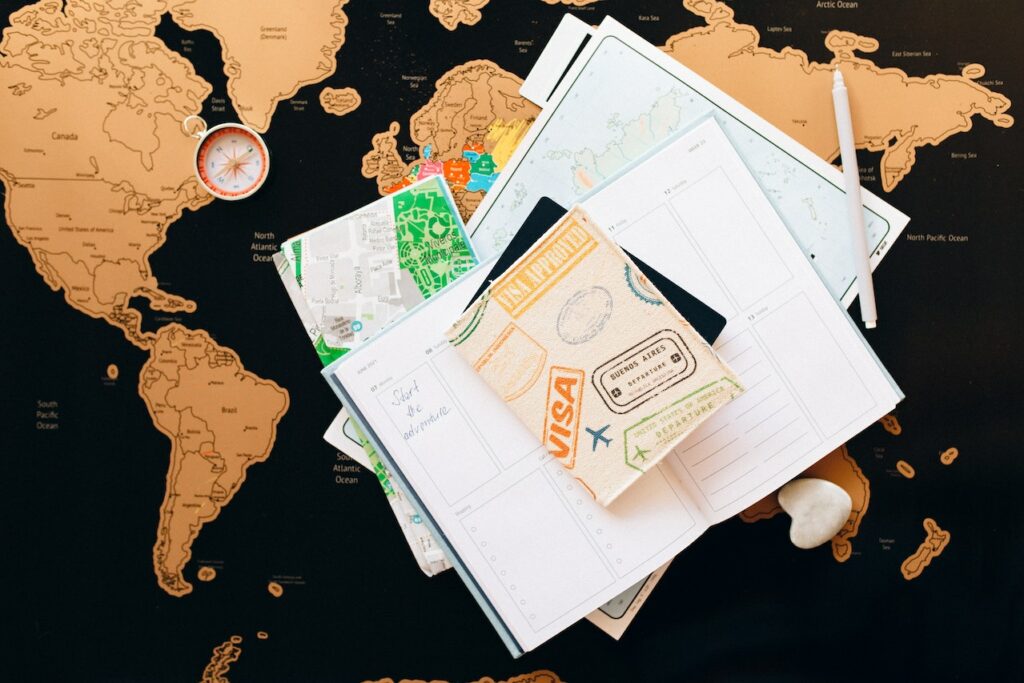|
|
These days, barely a week passes when we don’t see a press release about another country launching a digital nomad visa to attract remote workers to their country. Currently, more than 50 countries offer digital nomad visas.
But one of the common, fundamental requirements of a digital nomad visa is that you cannot work in the country in which you intend to reside. You must show that you are employed by a company in another country, or if you work for yourself, that your clients are elsewhere.
This is because the purpose of digital nomad visas is to bring foreign capital into the country, and not to let it leak out to foreign workers.
But what if you are a freelancer, small business owner, or entrepreneur and you want to spend time in a country specifically because there is a growing market for your service? While you might technically qualify for a digital nomad visa, its conditions may inhibit your ability to grow your business.
If this sounds like you, then another option may be a self-employment visa, though only a small number of countries currently offer them. These are older than digital nomad visas and are work visas for freelancers who will not have a specific employer sponsor their visas. As a result, they tend to offer a pathway to citizenship, unlike digital nomad visas. So, they are more for those looking to turn ex-pat than remote workers on the move.
Below we will look at the main differences between digital nomad visas and self-employment visas and look at the specific requirements for the most popular self-employment visas currently available.
Digital Nomad vs Self-Employment Visa
Visa Requirements
Whether you are applying for a digital nomad visa or a self-employment visa, you must be able to demonstrate that you will be able to support yourself from your income. The minimum income requirements for both visas are usually set at the same level and are dictated by local wages.
In both cases, you must show that you are qualified to do your job and that your income is stable. This usually means sharing evidence of qualifications, CVs, and work portfolios. Digital nomads must also show work contracts and commitments. Self-employed applicants must usually show evidence of their income from previous years and commitments from future clients.
While digital nomads do not need to register with local professional bodies, this is a fundamental step in applying for a self-employment visa.

Visa Duration
Both digital nomad and self-employment visas are usually offered for between two and three years. However, many digital nomad visas are not renewable or are only renewable once specifically to prevent holders from reaching the minimum residency required to apply for permanent residency.
Self-employment visas are usually renewable and are expected to offer a pathway to permanent residency for those who launch successful business ventures.
Access to Local Resources
Both digital nomad and self-employment visas will provide you with a residence permit that will enable you to do things like open a bank account and sign a rental contract. In both cases, you are unlikely to have recourse to public funds and will probably have to show proof of adequate health insurance to cover the duration of your visa.
In the case of digital nomad visas, you will be blocked from seeking employment in the local economy. If you bring a partner with you, they may be able to work locally with some restrictions. On a self-employment visa, you can work in your resident country, but you may be limited to certain fields and types of work.
Tax Status
Most digital nomad visas do not come with an automatic transfer of tax status to the new resident country. Most of the time digital nomads only become local tax residents if they stay for more than 183 days, and even then, double taxation agreements may mean that you do not need to pay local taxes on your international income.
On a self-employment visa, you are required to register with the local tax office as part of setting yourself up as a freelancer within that country. This means that you will become liable to pay local taxes immediately. While you may still benefit from double taxation agreements, you will pay local taxes on income earned from local clients.

Countries that Offer Self-Employment Visas
Germany
The German freelancer visa, known as the “Freiberufler” is open to freelancers working in what are considered “liberal professions” (rather than commercial professions). The German government has not published a comprehensive list of professions considered under this category, but they do include healthcare, law, tax and business counseling, scientific and technical roles, and linguistic and information transmission.
The visa is offered for three years in the first instance but is renewable if you manage to successfully establish yourself as a professional in Germany.
To be eligible to apply, you must be able to show competence in your professional field with evidence of qualifications, a portfolio of your previous work, and letters of recommendation from previous clients. You should also register with the relevant professional organization in Germany.
To show that you are financially viable, you must show that you have access to sufficient funds to support yourself, commitment letters from at least two clients you will work with while in Germany, and a business plan for your freelance work. If you are over the age of 45, you must also show that you have access to adequate pension funds.
There is a €75 application fee for the visa and an additional €140 fee to obtain your residence permit once you arrive in Germany.
Italy
Italy offers a similar freelancer visa to Germany, but you cannot apply at any time of the year. The Italian authorities open applications for work visas at specific times to control the flow of new workers into the country. This is called the “Decreto Flussi”. For example, in 2019, 30,820 work visas were granted during the Decreto Flussi, 2,400 of which were self-employment visas.
To be eligible to apply for the visa, you must register with the appropriate professional bodies. This must be done by a proxy, such as an immigration consultancy, in Italy on your behalf. Requirements vary depending on your profession, but once this is done, they can submit a work authorization application, called a “Nulla Osta” on your behalf.
This will allow you to apply for a visa. You must also show that your income last year was at least €8,400. The visa is granted for two years in the first instance, and you must apply for a residence permit within 10 days of arriving in Italy.

Belgium
Belgium also issues visas for professionals that want to freelance in the country. The visa is offered for between two and five years.
You must register for a professional card that authorizes you to be self-employed in Belgium. The exact process depends on your area of work, but you must usually show business acumen and experience alongside specialized professional skills. If licenses are required, you must also obtain these to complete your application. For example, you might need a protection of privacy permit to work as a private detective or a protection of feed hygiene permit to work in hospitality.
There is a €140 application fee, plus a €90 annual fee to maintain your professional permit.
Czechia
In Czechia, the self-employment visa is called the Zivnostensky or the Zinvo for short. It is valid for 12 months in the first instance and is renewable for another two years if you still meet the criteria. To qualify, you must be able to show that you have at least $5,644 in your bank account to support yourself.
To obtain the visa you must register for a Czech trade license. It is often easiest to enter the country on a tourist visa to complete this activity and then apply. You can find a list of eligible professions here. Once you have the license you then have 180 days to apply for the visa.
There is a $45 fee to obtain a trade license and $227 for the visa application. It usually takes between 90 and 120 days for a visa to be approved, so it can be a lengthy process.
Norway
The Norway self-employment visa is a little more restrictive than some of the examples above. You must be able to show that you have an established business abroad and that you are coming to Norway to work with a specific client. But when you are in Norway you can seek further local clients.
To apply, as well as your proof of established self-employment status and contract with a specific enterprise in Norway, you must show that you have appropriate qualifications for your field of work.
The visa is usually granted for two years and there is a $620 application fee.
Norway also has a separate remote work visa for those who want to spend time in the region of Svalbard.

Netherlands
Some self-employed workers can apply for a Dutch visa for up to two years in the first instance to work with clients in the Netherlands. The standard application fee is €1,348.
You must be able to show that the products or services that you provide are innovative or serve a specific need within the Dutch economy. Eligibility is assessed using a points-based system that assesses your personal experience and qualifications, your business plan, and what it offers to the local economy. If you are a freelancer, you must also be able to demonstrate that you have at least one local commission.
Obtaining a Self-Employment Visa
There are other countries around the world that offer similar programs, though they can be hard to identify as these visas are given a variety of different names. But the general requirements tend to be the same. You need to show that you are a successful professional with local clients that will bring value to the local economy.
Registering with local trade organizations and tax authorities mean that these visas often involve a lot of paperwork, so they can be less attractive than the new digital nomad visas that are popping up around the world.
Nevertheless, they are one more way that countries are opening their doors to talented professionals that add value.












